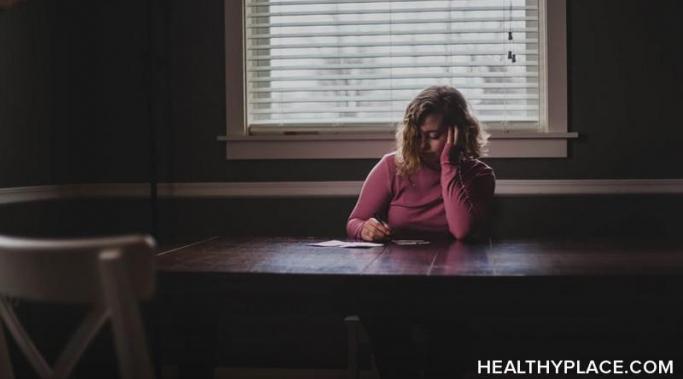Blogs
Your behavior can make you look insecure to others, but you don't need to look insecure. Without knowing it, you may act in a way that shows others you struggle with confidence. However, we've all done it and instead of beating yourself up, learn how to change these behaviors so that you can appear confident and not look insecure.
Hearing voices might be the most stigmatized symptom of schizophrenia or schizoaffective disorder. When people hear about it, they imagine “what the voices tell you to do,” and even go as far as assuming that the voices command those of us hearing them to kill people. Just for the record: my voices don’t tell me to do anything, and even if they did I wouldn’t comply because I know they’re not real. Getting the message that the stigma of hearing voices is unnecessary across to people is probably one of the most important things I can do.
Researchers are beginning to shed light on the relationship between anxiety and sunlight, and it’s becoming evident that the sun is linked to anxiety and possibly even panic disorder. The connection between sunlight and depression has long been established (Relationship Between Depression and Anxiety). The inclusion of anxiety and sunlight in this mix is a development that just might illuminate more strategies to reduce anxiety.
It's possible to calm the anxiety you experience during the day simply by creating a morning ritual. Whether anxiety obnoxiously wakes you before your alarm sounds or greets you loudly the moment you're awake, beginning the day with anxious thoughts, troubled emotions, and agitated bodily sensations is exhausting and discouraging. Yet if you create a morning ritual to calm anxiety, it doesn't have to ruin your day before it even begins.
Depression counseling is a useful tool for anyone living with depression. Mental health counselors typically give advice on how to cope with depression and other mental illnesses, which is helpful when you feel you've run out of ideas. I read articles and implement new depression coping mechanisms endlessly, but sometimes I cannot give myself the help I need. I've been in and out of counseling for ten years with a wide variety of counselors, and while I didn't always like the counselor, the act of seeking professional counseling kept me on my toes as I managed my depression.
I wish my loved ones knew certain things about my mental health. But explaining mental illness to someone who doesn’t have it can feel impossible, especially when it comes to family members and close friends. We want our loved ones to support us without judgement, but it doesn’t always work out that way. Here's what I wish my loved ones knew about my mental health.
Because I'm 38, I'm starting to wonder if my schizoaffective disorder has held me back. Of course, you don’t have to have schizophrenia or schizoaffective disorder to get anxious around midlife. When my mom, who doesn’t have schizophrenia or schizoaffective disorder, turned 40, my little brother cheerfully quipped, “Hey, Mom. Now you’re half dead.” She laughed, but I imagine the words must have stung a little bit. However, for someone with a mental illness, evaluating your life at midlife means wondering how much—and if at all—your schizophrenia or schizoaffective disorder has held you back.
Three health-related bonuses to eating disorder recovery are given to us as we walk down recovery road. When we're healthy we often take that health for granted, but when we're sick we long for health and lament that we haven't been appreciative of it. But recovery teaches us that the body, mind, and soul are more resilient than we might have thought. There are at least three health-related bonuses to eating disorder recovery.
There are actionable steps in my anxiety action plan that you can take to manage your anxiety. All too often, I find myself in a position where I feel an unwarranted sense of worry, fear, or panic. Even when there is no pressing issue, I often find myself looking for ways to manage anxiety. This is the anxiety action plan I use to manage anxious times.










I believe she will only be able to rid herself of her demons, and hopefully her BPD as well, when she's ready to confront the abuse of her father. If she can put the blame where it belongs, she may stop projecting that victim/perpetrator cycle on the present men in her life. These demons are a metaphor for the purgatory she has created for herself. That reality has consequences in the real world, but it need not be real in the tangible sense. Exorcising her demons will require the expenditure of real physical energy and probably the destruction of aspects of her personality. If this ever happens, and it's possible but not probable, then these demons will evaporate. They are only as real as one's personality is real. In short, reality is not the question, it's what you make of the things you feel to be real.